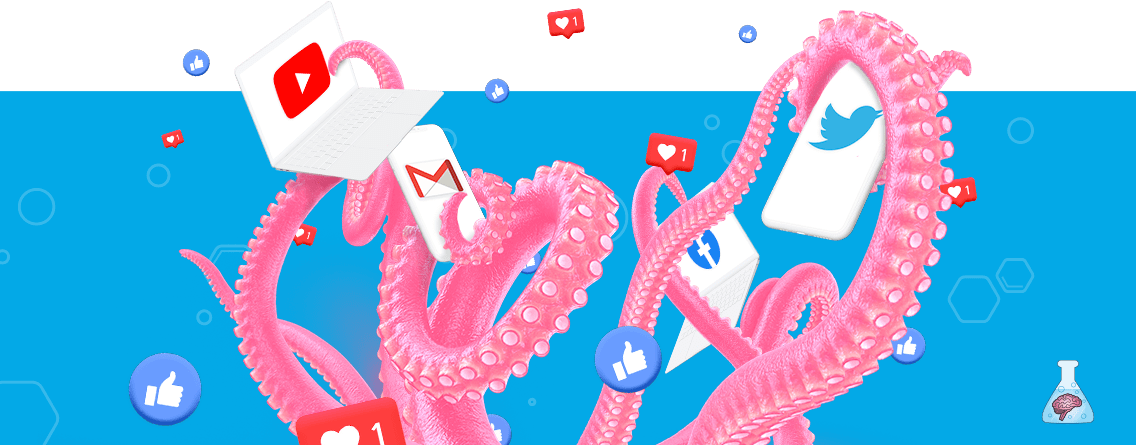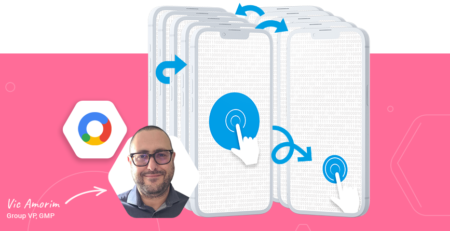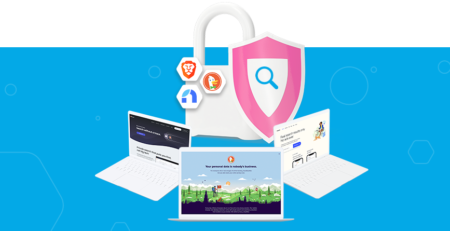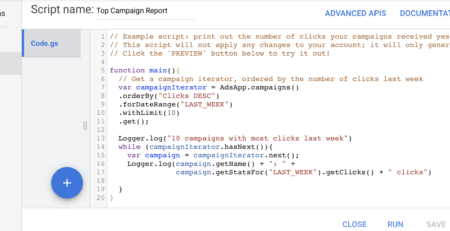The epidemic of multitasking and technology addiction: are they always bad?
At first glance, multitasking seems like an excellent approach to getting a lot of things done at once. However, studies have shown that human brains are not designed to handle multiple tasks at the same time. Multitasking might even have a negative impact: according to some researchers, it reduces productivity by around 40%. This is likely because instead of focusing on finishing a single task, you have to shift your attention from one thing to another, which lessens your brain’s capacity to filter distractions and remove mental blocks. As a result, it slows you down.
Now, technology serves to enable people to multitask. With the staggering number of apps available at your fingertips to accomplish just about anything, it is quite easy to get distracted.
But there are still ways to use technology in a way that will genuinely improve your efficiency. It is a matter of willpower and control to help you overcome the need to constantly check your electronic devices and switch between apps and various tasks.
The Science of Multitasking and Technology Addiction
The impact of excessive smartphone use can be compared to substance addiction, according to medical experts. The need for constant digital stimuli is akin to craving “electronic cocaine” and “digital heroin”: some experts argue that prolonged screen time has the same impact on the frontal cortex of the brain as cocaine does. Moreover, overuse of digital gadgets may lead to anxiety, depression, aggression, and other psychotic behaviors in some cases.
Some countries like Japan, China, Australia, Italy, Korea, India, and Taiwan have even considered digital addiction to be an official disorder. Even the US has seen the rise of facilities meant to impose digital detox on people who cannot stop using their phones to text, tweet, play games, and surf the Internet.
Multitasking does not necessarily always have disastrous results, depending on the tasks you’re doing. If you’re simply folding laundry during the weekends while listening to podcasts, it does not significantly diminish the desired output. It is an entirely different story, though, if you are conducting a conference call while replying to a client email and entertaining your officemate’s questions at the same time.
According to research, technology-heavy multitasking can mess up your brain. Switching from one screen to another can reduce your brain’s capacity to store information, disrupt your thought process, and possibly even lower your IQ. If you’re watching TV while tweeting about the show that’s on, you might not remember half of what you’ve just watched. So, if you decide to have a movie marathon, put your phone down.
Why Do We Habitually Check Email and Social Media?
Email addiction is a real problem for people, mainly due to something called operant conditioning. This refers to the mind’s ability to discern that if you do something, you get something in return. For example, if you check your email and you see something new in your inbox, it makes you feel excited (or any emotion that suits whatever the content of the mail you’re expecting may be).
Most people constantly check their email due to several reasons, such as:
- They don’t want to be behind on replying to emails, which, even when done in batches, still takes up a lot of time, especially if responses involve a lot of decision-making.
- Attending to emails is a distraction that is more pleasurable than doing actual work.
- They don’t want to miss out on what they feel are important emails with golden opportunities.
- They want to establish a conscientious image of someone who replies to emails right away.
- They check emails out of habit.
- They feel anxious during downtime and choose to fill their vacant time by replying to emails.
Visiting social media pages can become addictive as it encourages the reward center of the brain as people’s likes, tweets, and other forms of online interaction can represent some sort of social acceptance. The act itself provides instant gratification. Every time you share a photo, quote, video, or any update, the fact that people react to it might boost your self-esteem and serve as your affirmation, fueling your need to check social media constantly.
How to Avoid Tech Burnout
Do you bring your phone with you wherever you go, even to the bathroom or yoga class? Do you feel the strong temptation to answer emails or texts even while driving? Do you wake up and check your emails first thing in the morning? Do you feel proud of being always available to respond to messages and emergency assignments throughout the day and even at night? You might be on the verge of a tech burnout, but you can do something to prevent it, including the following:
- Turn on the “Do Not Disturb” features of your smartphone. This is especially important while you’re driving, attending a meeting, or doing something that requires your undivided attention.
- Tell people that you’re preventing burnout and turning your tech addiction around. This will help you draw the line and encourage them to help you achieve your goals. Doing this will also allow you to set boundaries on your accessibility beyond office hours. This might even encourage them to do the same.
- Take some mental downtime. It could be taking a nap, meditating for a few minutes, or going on a walk around the block. This is an important time for you to refocus and be more productive.
- Take a vacation off work and technology as well. Spend some time to appreciate the world beyond the screen of your phone and computer.
- Use technology, but only when they help you improve your focus and avoid distractions. There are various apps to help streamline tasks, automate work, and save time. Invest in them to your advantage.
Debunking the Multitasking Myths
Multitasking is a myth. While multitasking, you are working yourself to the point of getting distracted and ruining your memory. You can hardly accomplish anything, while doing multiple tasks at once. Instead, you’re slowing your productivity down and reducing your chances of doing things well. Chronic multitaskers end up being chronically distracted, unable to keep themselves on task, according to studies. You risk losing your ability to focus on a single task at hand.
Are there people who can adapt to multitasking? There might be a very small group of multitaskers who can attend to two tasks without a significant reduction in productivity, but no studies have shown that it is possible to do three tasks at once. Given the amount of distraction and enabling that technology has provided to people these days, it only worsens the impact of multitasking.
General multitasking is different from multitasking with technology, though. You can do several tasks at once and your brain will still be able to process them well, especially if they are integrative tasks. However, it’s different when you have to write a research paper on the impact of technology, then switch to check what’s trending on Twitter, and watch a YouTube music video of your favorite artist. It puts more demand on the brain to do totally different things at once.
You cannot stop technology from flourishing, but you can do something to make it work to your advantage instead of wreaking havoc to your brain and causing addiction. Use technology to give you more time to enjoy what life has to offer, express your creativity, and build relationships well beyond the virtual world.




